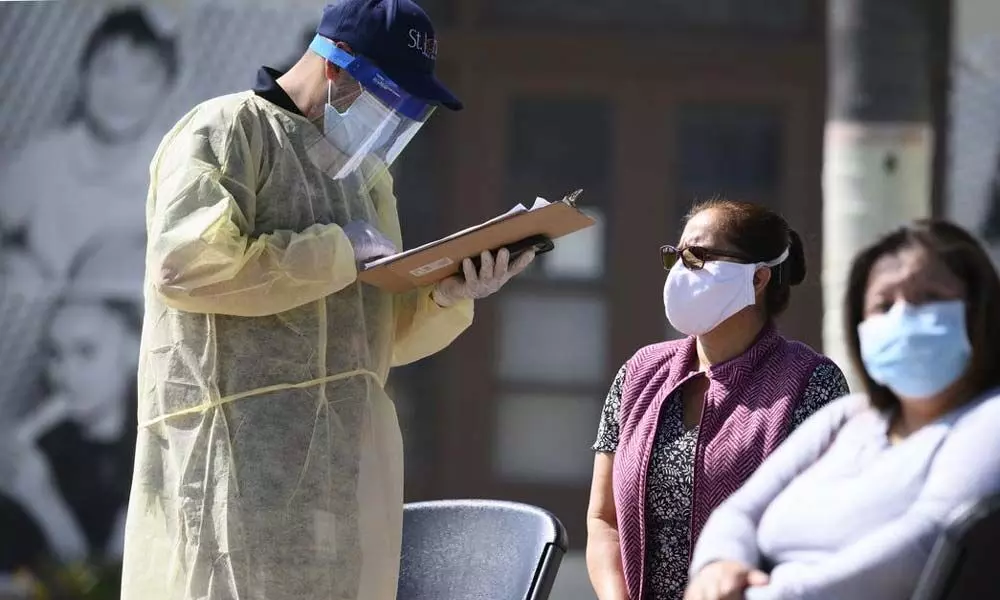Covid-19 pandemic is exposing inequality
The Covid-19 pandemic has reached at least 215 countries and territories, according to the World Health Organisation (WHO). As of January, the virus has infected over 99 million people and killed more than 2.1 million.
image for illustrative purpose

The Covid-19 pandemic has reached at least 215 countries and territories, according to the World Health Organisation (WHO). As of January, the virus has infected over 99 million people and killed more than 2.1 million.
Some workers will be able to ride out the pandemic more easily than others. To reduce the risk of spreading the virus, companies are increasingly having employees work from home, but that's not possible for everyone.
The pandemic has popularised the concept of 'social distancing' - staying at least two metres (six feet) from other people to reduce the spread - but not everyone can do that. It is challenging particularly in dense urban areas. Poor housing conditions in enclaves where neighbours squeeze past each other in tight hallways, several persons living in small spaces, multiple family members sleeping in one room, and limited bathroom and washing facilities that are shared by some 20 persons at a time make social distancing impossible. Many of them going to work - like grocery store keepers, delivery boys, drivers and cleaners - are already dealing with poverty, job insecurity and difficult working conditions before the pandemic.
Many people of colour hold high-risk, essential jobs, but work isn't the only factor which increases their risk of getting ill or dying from Covid. "The environments where most live, the jobs they have, the prevalence of health conditions such as high blood pressure and diabetes, and how they are treated by the medical establishment have created a toxic storm of severe illness and death.
For people who have it, internet access has been crucial during the pandemic, keeping us connected to work, to school, to public health information, to our friends and family and to sources of entertainment.
Like 'social distancing,' 'ventilator' has become a household word during the pandemic. Ventilators are pieces of equipment that help the hardest-hit Covid patients breathe - and whether a patient has access to one depends largely on where he or she lives.
Many wealthy countries have expanded their social safety nets during the Covid crisis, either giving many workers a monthly payment to stay home. Many rely entirely on their day-to-day income.
With schools closed and many adults working from home, the burden of housework, caring for the sick and educating children falls disproportionately on women - who often have to work at the same time.
Along with sheltering in place, regular hand-washing is one way to prevent the spread of coronavirus. However, not everyone has access to water. About 844 million people lack access to clean water.

